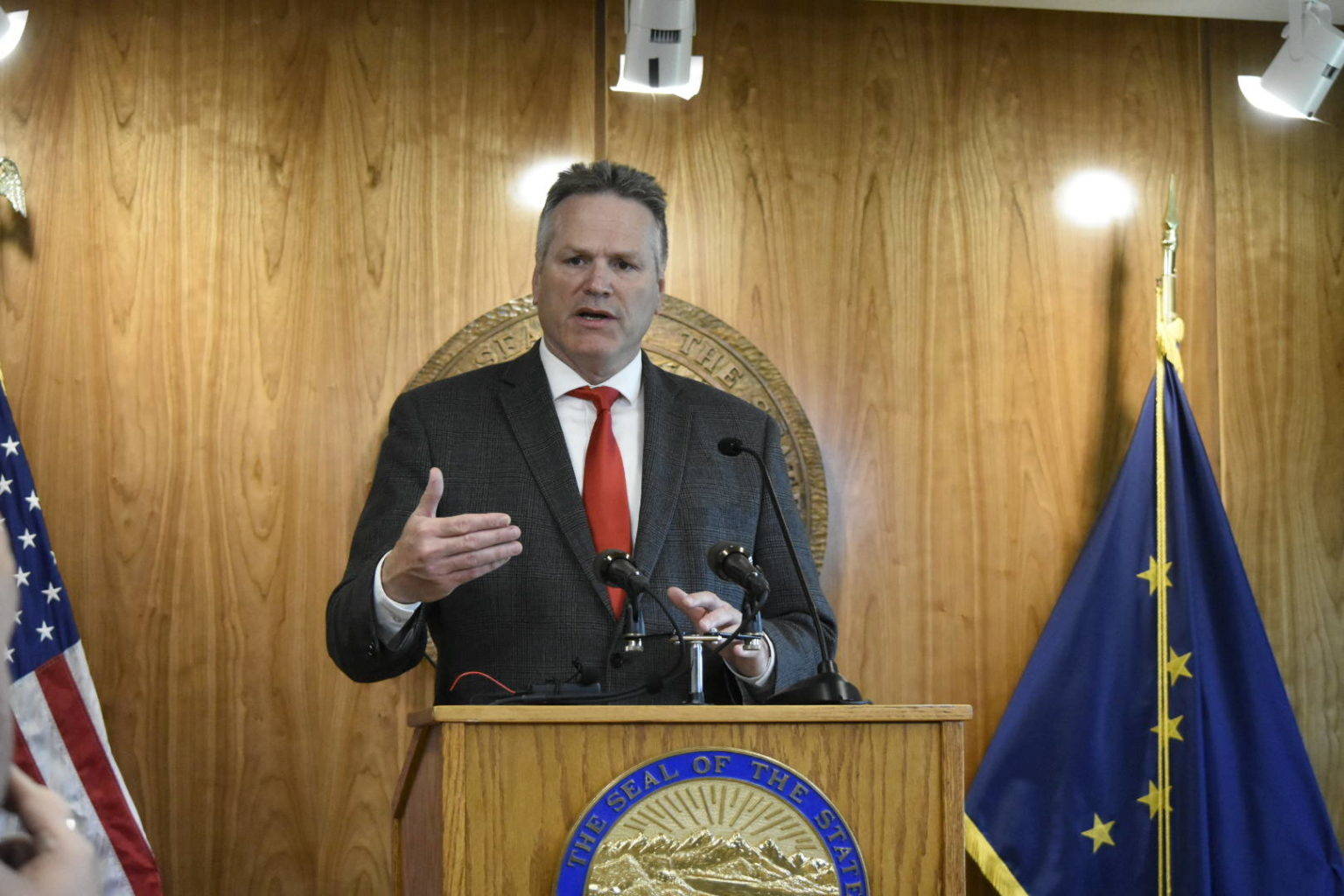Associated Press
JUNEAU — Gov. Mike Dunleavy will allow to go through a $4 billion transfer of earnings from the Alaska Permanent Fund to the fund’s constitutionally protected principal that he had intended to veto, a spokesperson said.
Corey Allen Young, a spokesperson for Dunleavy, told The Associated Press by email on Tuesday the transfer would not “adversely affect” the governor’s proposal to restructure the oil-wealth fund and place a dividend formula in the constitution calling for a 50/50 split between what is drawn for dividends and government. Young did not immediately respond to questions about what options Dunleavy may have had if he had wanted to pursue the veto.
Dunleavy last week said one of his more significant vetoes was the $4 billion transfer. But the version of the budget posted on the Legislature’s website shows that item was not crossed out, as Dunleavy said he intended.
The governor’s office said it was an error that should be corrected. But members of the Alaska House’s majority coalition on Saturday decided against accepting his correction and said legislative attorneys were expected to weigh in, the Anchorage Daily News reported.
As of May 31, $12.2 billion in the earnings reserve was uncommitted, according to the Alaska Permanent Fund Corp. That does not include the $4 billion transfer that was part of the budget passed last month.
Lawmakers who supported the transfer saw it as a way to keep the money from being spent. The state has been using earnings, long used to pay annual dividends to residents, to also help pay for government. A 2018 law sought to limit withdrawals for both purposes, and some lawmakers vigorously oppose exceeding that limit, particularly if there is no long-term agreement in place to resolve an ongoing dispute over the size of dividend checks.
Dunleavy, in announcing his vetoes Thursday, said the intent behind stopping the transfer was to have a fuller discussion with lawmakers about “a comprehensive approach” to dealing with the fund.
Some lawmakers have pushed back against some assumptions underlying the administration’s proposal for the fund and dividend program.
Dunleavy signed the budget Wednesday but did not release his vetoes or a preliminary draft of his approved budget until Thursday, the start of the new fiscal year. The final document sent to the House and Senate did not match the draft from Thursday, as it did not cross out the transfer.
Young at the time attributed the mishap to a “scrivener’s error” that took place as Dunleavy’s office and legislative aides rushed to finalize the budget.
It wasn’t until June 28 that the House adopted effective date provisions that Dunleavy maintained were necessary to implement a timely budget.
Lawmakers often correct minor mistakes in legislation, such a typographical errors, but legislative clerks weren’t willing to accept a correction to the veto error on Friday, saying it was more than a minor mistake.
Dunleavy had sent letters to the House speaker and Senate president, dated Friday, outlining the mishap and stating his veto intent.
Sen. Bert Stedman, a Sitka Republican and a budget negotiator who wrote the $4 billion transfer clause, said there are processes in place.
“The rules are set up and the structure set up intentionally to have a fair political process, and this is the process you have to follow. You can’t just modify things … after everything, and your documents are signed and stamped and done,” he said. “That’s not how it works.”

